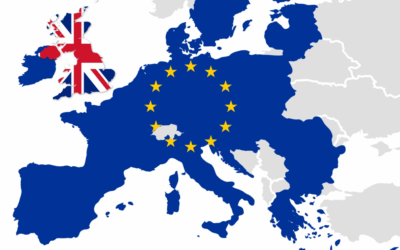
To continue the series of economic growth forecasts, this week’s article delves into the French economic forecast for 2024 and informs on recent updates for the financial strategies of France.
Preliminary data released by the INSEE statistics agency in January 2024 revealed that the French economy did not experience growth in the fourth quarter, aligning with what analysts had anticipated. According to INSEE’s quarterly GDP report, the euro zone’s second-largest economy remained stagnant at 0.0% during the last three months of the previous year, following a period of no growth in the third quarter.
The GDP is estimated to have expanded by 0.9% in 2023, primarily fueled by robust growth in the second quarter, a figure slightly below the Autumn 2023 Forecast. Despite government support measures and a favorable labor market with dynamic wage growth sustaining households’ purchasing power, high inflation, and tighter financial conditions dampened growth throughout the year. Although net exports contributed positively, this was mainly due to reduced imports rather than robust domestic demand.
Looking ahead to 2024, GDP growth is expected to be moderate at 0.9% annually, marking a downward revision of 0.3 percentage points from the Autumn Forecast. This adjustment is primarily due to a weaker-than-expected performance in the second half of 2023. Economic activity is anticipated to pick up momentum in the latter half of 2024, with private consumption driving growth amid declining inflation. Investment is forecasted to remain subdued initially due to restrictive financing conditions but is expected to rebound later in the year. Net exports are not expected to contribute significantly to GDP growth as imports rise with strong demand, while exports gradually recover to pre-crisis levels.
In 2025, GDP growth is forecasted at 1.3%, slightly lower than the Autumn Forecast. Private consumption is anticipated to remain a key driver as inflationary pressures ease and household savings rates decline toward historical averages. Both household and corporate investments are projected to recover gradually. Net exports are expected to make a limited contribution to growth, with robust export growth offset by increased imports driven by expanding domestic demand.
HICP inflation, after peaking at 7.0% in the first quarter of 2023, declined throughout the year to 4.2% in the fourth quarter, largely due to falling energy and commodity prices. However, the phasing-out of energy-related measures and an increase in the electricity tax in February 2024 are likely to push electricity prices up by close to 10%. Wage increases are expected to continue to exert pressure on prices, although inflation is forecasted to trend downwards over the forecast period. Inflation is projected to decline from 5.7% in 2023 to 2.8% in 2024 and further to 2.0% in 2025, with the 2024 forecast slightly lower than the autumn projection.
The French Finance Minister announced a plan to slash state spending by 10 billion euros across all government departments and agencies. This includes five billion euros in cuts to operating expenses for ministries and another five billion euros in reductions to public policies, with significant cuts expected in areas such as public development aid and residential building renovation subsidies. Additionally, one billion euros will be trimmed from the budgets of state operators like export agency Business France and the ANCT agency for regional government policies. The government aims to gradually reduce the fiscal shortfall over the coming years, aiming to bring it below the EU-mandated ceiling of 3% by 2027.
This new fiscal plan aligns more closely with recent downgrades in growth forecasts by the European Commission, the OECD, and the French statistics agency INSEE. The European Commission revised its 2024 GDP growth forecast for France down to 0.9% from the previous 1.2% in November, while also cutting Germany’s forecast to 0.3% from 0.8%. Similarly, the OECD downgraded its 2024 growth projection for France to 0.6% from 0.8% earlier in February, indicating concerns about France’s economic outlook for the year. INSEE, France’s statistics agency, forecasted a modest quarter-on-quarter growth of just 0.2% for the first and second quarters of the year, reflecting the cautious economic outlook.
References
European Commission. (2024, February 15). Economic forecast for France. Retrieved from European Commission: https://economy-finance.ec.europa.eu/economic-surveillance-eu-economies/france/economic-forecast-france_en
Pineau, E., & De Clercq, G. (2024, February 18). France cuts 2024 growth forecast as outlook darkens. Reuters.
Reuters. (2024, January 30). French economy fails to grow in fourth quarter – INSEE. Reuters.
Photo:
https://th.bing.com/th/id/R.9add7669372f6b304e0d6f90018dfd91?rik=VBmDOsfXq2SWjw&riu=http%3a%2f%2fwww.thebluediamondgallery.com%2fwooden-tile%2fimages%2feconomy.jpg&ehk=Z3kVeX1EDn30no1oSZbGIWkZ4iwHI8cjk9%2fOhFromco%3d&risl=&pid=ImgRaw&r=0



